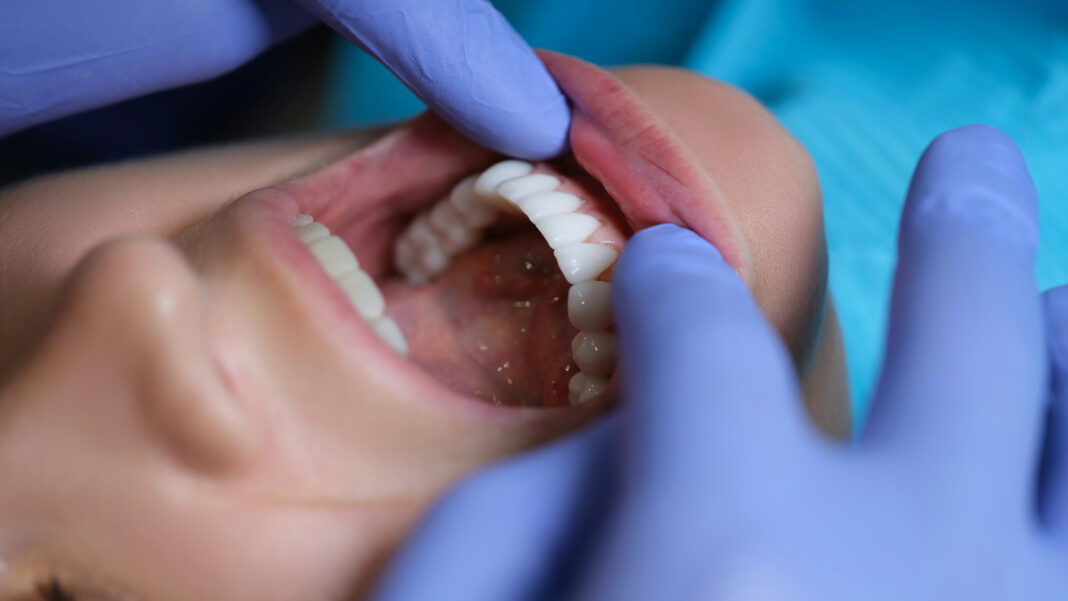Smoking is linked to many health challenges, including increased risks of cancer, heart disease, stroke, and more. According to the National Library of Medicine, smoking is a predictor of complications in surgeries of all kinds.1 In the case of dental implants, smokers have a greater chance of infection, undesirable side effects, and even implant failure when compared with non-smokers. Here’s what you need to know about the potential effects of smoking on the success of dental implants in Greensboro, NC.
Can Smokers Get Dental Implants?
If you smoke, it’s still possible to have a dental implant procedure. But before you begin your dental implant journey, it’s important to discuss the risks with your dentist since smoking can increase the chance of dental implant failure.
Your dentist or oral surgeon may suggest temporarily pausing or quitting smoking entirely before you begin dental implant treatment and stopping until the implant is completely healed. This could reduce the risk of complications or adverse side effects of dental implants and promote healthy healing.
4 Ways Smoking Affects Dental Implants
Here are four common ways smoking can impact the success of dental implants.
1. Increased Risk of Infection
Smoking and nicotine can weaken the body’s immune system. Because of this, smokers may be more susceptible to oral infections like gum disease or periodontitis. If left untreated, these infections can worsen and eventually lead to implant failure. If you have an oral infection, you may not be a good candidate for dental implants, or you may need to seek treatment for the infection before getting a dental implant.
2. Delayed Osseointegration and Healing
A steady flow of blood to the dental implant site promotes healthy, normal healing and repairs and rebuilds tissue. Similarly, for osseointegration to occur, the jawbone must fuse with the titanium implant post to create a stable foundation for the artificial tooth. Smoking restricts blood flow, which can slow osseointegration and delay the tissue restoration process. It may also lengthen the procedure timeline and potentially lead to complications or an unsuccessful implant.
3. Higher Risk of Bone Loss
Smoking can stop bone-building cells from functioning normally. This can lead to bone health concerns like osteoporosis. It may also reduce calcium absorption into the bones, which can further disrupt long-term bone health.
Healthy bone density is required for dental implants since it stabilizes the titanium root system to secure the artificial tooth in place. If you have insufficient bone density, your dentist may recommend that you get a bone graft before you have a dental implant put in. But for smokers with a weakened jawbone, a dental implant could destabilize over time, especially if a patient continues smoking, since it can mean further bone deterioration.
4. Reduced Saliva Production
Saliva production is a natural process that promotes good oral health. It helps remove food debris and reduces the presence of bacteria in the mouth. Smoking reduces natural saliva production, which can cause dry mouth and increase the presence of bacteria, plaque buildup, and gum infections, which may also increase your risk of implant failure.
The Bottom Line
Whether you have all-natural teeth, dental bridges vs. implants, or another tooth replacement solution, smoking can negatively impact your oral health. Smoking can increase your risk of various health conditions and complications that result from surgeries, including dental implant surgery. Your dentist may recommend that you quit smoking before and after the dental implant procedure to promote your chances of dental implant success and normal osseointegration and healing. Consider using a nicotine alternative during the dental implant process or kicking the habit for good for greater chances of a successful dental implant and improved overall health.
Sources:
1 National Library of Medicine – https://pmc.ncbi.nlm.nih.gov/articles/PMC10122503/





